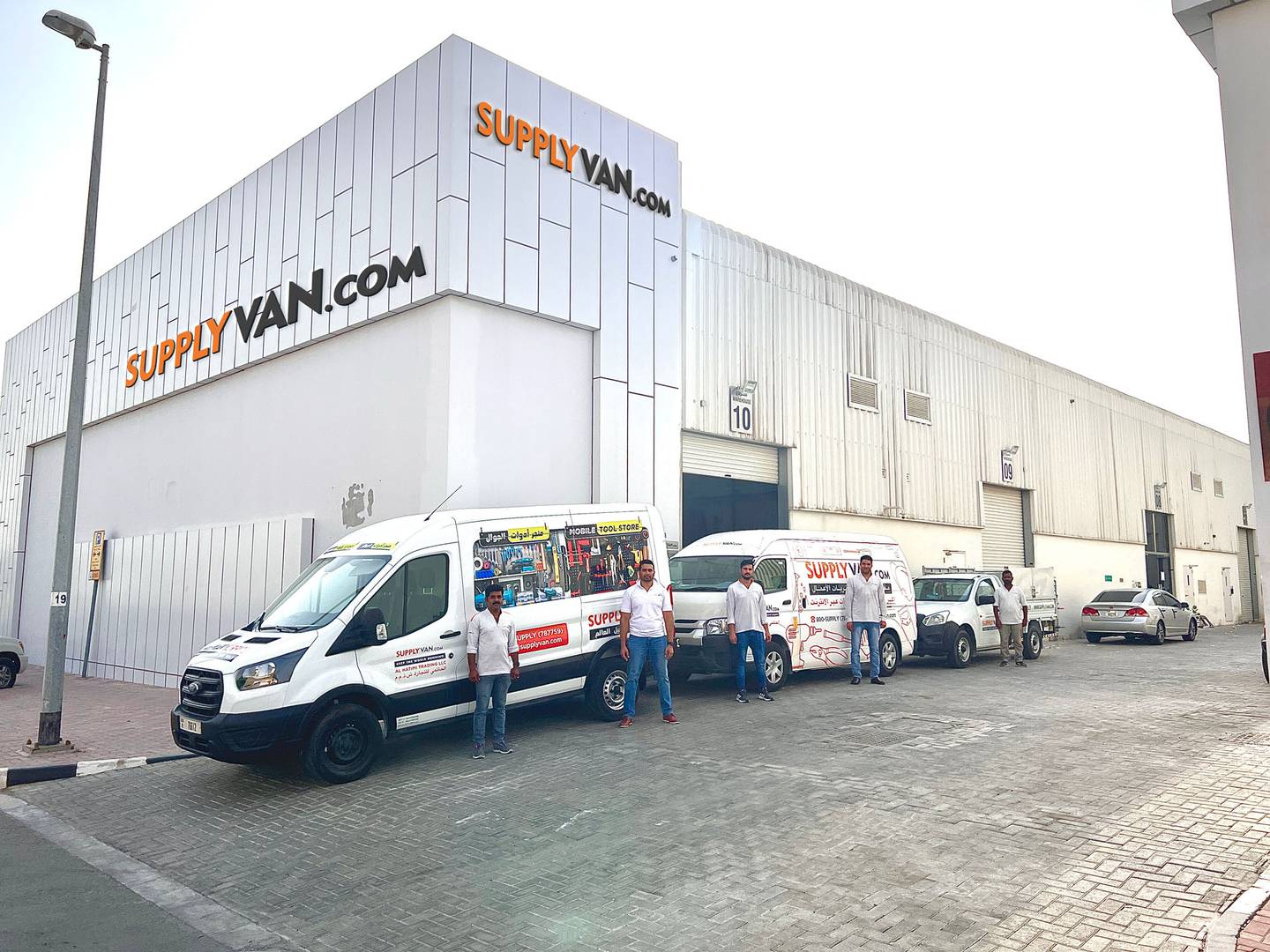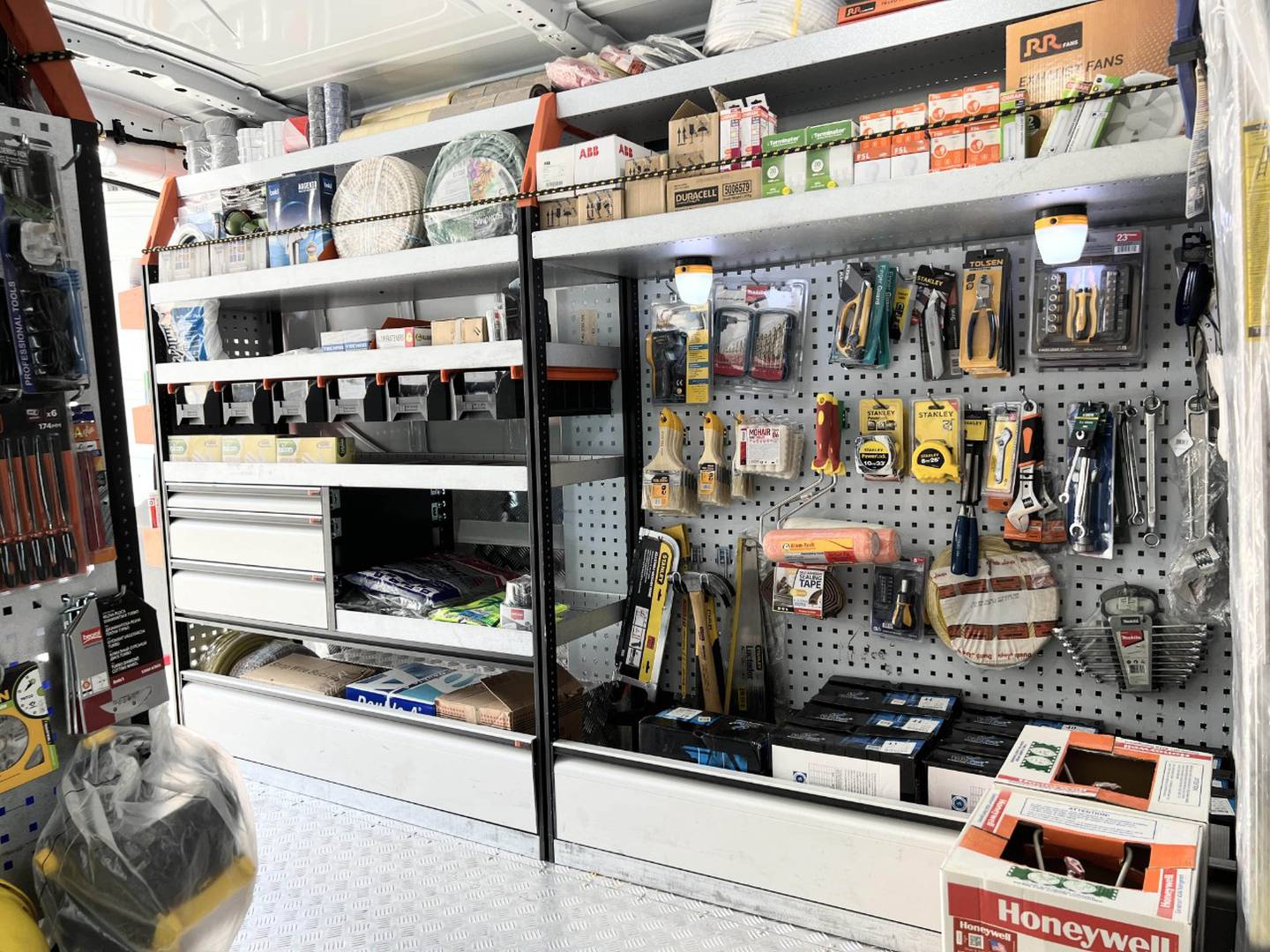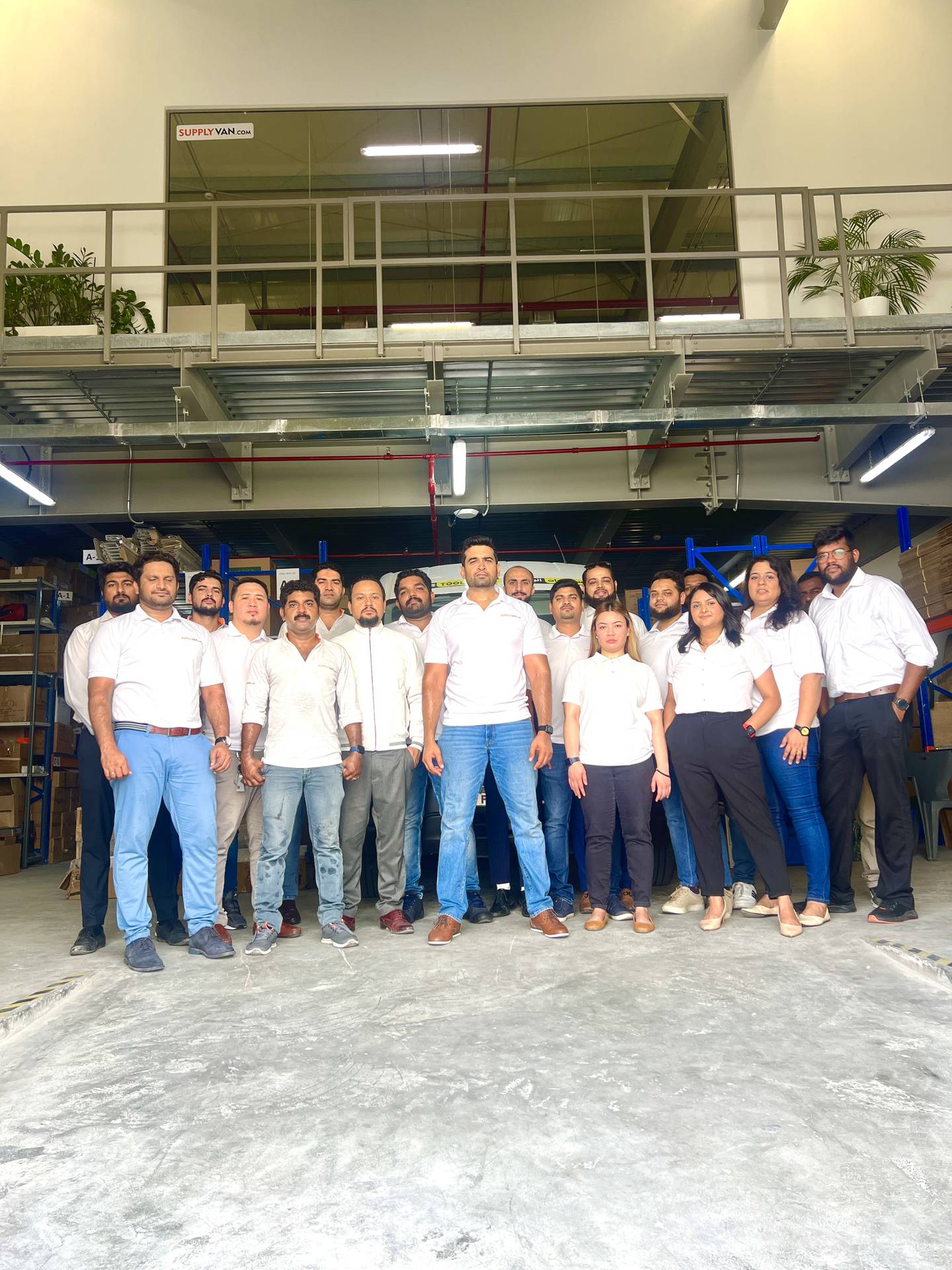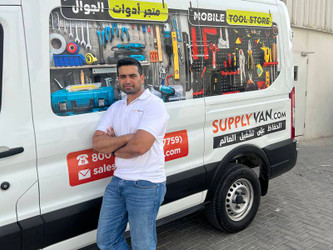The e-commerce platform plans to add new business verticals as it plots international expansion
Inspired by Amazon’sbillionaire founder Jeff Bezos, Ali Asgar Raja, 42, set up SupplyVan, a maintenance, repair and overhaul (MRO) e-commerce platform in the Middle East in 2017.
The UAE-based company, which acts as a one-stop shop for allhardware productrequirements, says it had the first-mover advantage in the Middle East in the dedicated MRO products supply space.
While Amazon is a marketplace where buyers and sellers have direct access to each other, SupplyVan acts as a “curated marketplace”, says Mr Raja, who is also the chief executive of the company.
“We are industry-based; Amazon is consumer-based … what we are doing is essentially taking the traditional B2B [business-to-business] business of procurement online,” he says.
SupplyVan’s consolidated ecosystem eliminates the challenges of dealing with multiple layers — for buyers, invoices and deliveries.
“Typically, when vendors would receive inquiries from multiple customers, all vendors would come back with their own pricing and stock of what they have — and they might not have all the items requested. And that’s where we come in,” Mr Raja says.
“We are a single-aisle supplier, so we are your single source for all the requested products. The customer receives a single invoice, whereas the entire processing, be it issuing purchase orders to the vendors, procurement, picking up the goods to delivery [or] consolidation at our warehouses … everything happens from our side.”
SupplyVan, which counts the Dubai Electricity and Water Authority and Emirates Global Aluminium among its customers, supplies products required by all types of industries, factories, workshops, offices, contractors and businesses in the Middle East and North Africa.
The company sells power tools and hand tools, as well as safety, measuring and testing equipment, including hydraulics and pneumatics products, through its website.
“We work with government, semi-government as well as private companies. We also work with a lot of facilities management companies,” says Mr Raja.
With a fleet of six delivery vehicles covering Dubai, Sharjah and Abu Dhabi, SupplyVan services other GCC markets, such as Oman, Kuwait, Bahrain and Qatar, by teaming up with local courier companies in those countries.

The company, which has two logistics centres in Dubai, plans to set up operations in Saudi Arabia in the next couple of months, where it is already in talks with investors to raise funds, Mr Raja says.
“It is a big country and thus it would require a substantial amount of investment,” he says of the kingdom.
“We started in the kingdom with local courier companies to handle the logistics and we would want to continue partnering with them until we can have a network of our own vehicles there. We would want to build our B2B network in Saudi Arabia as well, like the one we have here in the UAE.”
The growth in the logistics sector comes amid a boom in the e-commerce space.
The Covid-19 pandemic, which led to lockdowns around the world, hastened the move to digital commerce as consumers switched to cashless payments and online shopping.
Globally, the e-commerce market is expected to hit $55.6 trillion by 2027 at a compound annual growth rate of about 27.4 per cent, from an estimated $13tn in 2021, data from US-based research firm Imarc Group suggests.
The UAE's e-commerce market is projected to be worth $9.2 billion in 2026, up nearly 92 per cent from 2021, as online sales continue to soar in the country, a recent Dubai Chamber of Commerce study found.
The study, based on data from Euromonitor, also projected that the share of e-commerce in total retail sales will reach 12.6 per cent by 2026.
E-commerce sales in the UAE grew to $4.8bn in 2021, up almost 85 per cent compared with $2.6bn in 2019.
For SupplyVan, although business suffered during the Covid crisis, the pandemic also opened up a lot of opportunities.
“We’ve had customers approaching us, requesting help with digitising their catalogues,” Mr Raja says.
“The MRO product demand is growing with the revival of the economy driven by the relaxation of Covid restrictions. While there is a massive opportunity for the MRO products industry, too little is digitised.”
SupplyVan registered a five-fold growth in its business last year and expects to grow at the same “or at a higher” rate this year as well, Mr Raja says.
To meet growing demand, SupplyVan also launched its mobile hardware store last month. It offers customers an option to buy products from the company’s van, which also doubles up as a physical store.

Initially being rolled out in Jebel Ali and Dubai Investment Park, the mobile store features commonplace MRO tools such as electrical wiring and accessories, WD-40 and other sealants, lighting spares and so on, Mr Raja says.
SupplyVan vehicles will carry fast-moving branded products that are required for urgent repair and maintenance, providing one-day deliveries for orders placed online or paid with cash or credit card on delivery.
Next on the cards is a mobile application, which the company expects to launch by the end of this year, that will provide geolocation of all the vans and the inventory carried for immediate purchase with location tracking.
The self-funded SupplyVan sells more than 150,000 items in 34 product categories from more than 2,000 international brands, including 3M, Honeywell, DeWalt, Bosch, Hitachi, Milwaukee, SKF and Fluke.
The concept was inspired by and modelled around that of a couple of US-based companies: Illinois-based Grainger, whose revenue is upwards of $15bn, and New Jersey-based Wurth.
“These are the biggest movers in the market today, and that’s what we aspire to be at some point in the future,” says Mr Raja.
He confirms that the company has raised funds from private investors and family offices, but declined to disclose further details.
“We have been self-sufficient so far. But, of course, with expansion plans in place, we will be looking at raising more funds,” he says.
In its next phase of growth, SupplyVan is seeking to establish a database of vendors and customers.
“What we are looking at is a review system, wherein at some point, customers will be able to review the vendors and comment on them. This would also help to establish a more competitive market, simply because vendors will make sure that they have the correct pricing, are providing the correct quality and are guaranteeing the products,” Mr Raja says.
The company is also developing a tech product which will allow customers to interact with vendors directly.
“However, this would be a separate business and a separate platform altogether … similar to Alibaba. If customers want to buy something in bulk, the natural tendency is for them to go directly to the supplier,” Mr Raja says.
“There’s a much larger market out there, and we want to be a part of that ecosystem as well because the majority of the business could possibly be channelled through us. So we would behave like an intermediate company who can take a certain commission or a service fees out of it and at the same time make sure that the transaction goes through.”
SupplyVan is Mr Raja’s second venture in the e-commerce space. The entrepreneur started an e-commerce platform selling toys in his home town ofMumbai, India, which failed to take off, before he moved to Dubai in 2008.
“My background has been industry supplies so I understand the market and both sides of it — customers as well as vendors,” he says. Read More...


 UAE Dirham
UAE Dirham

